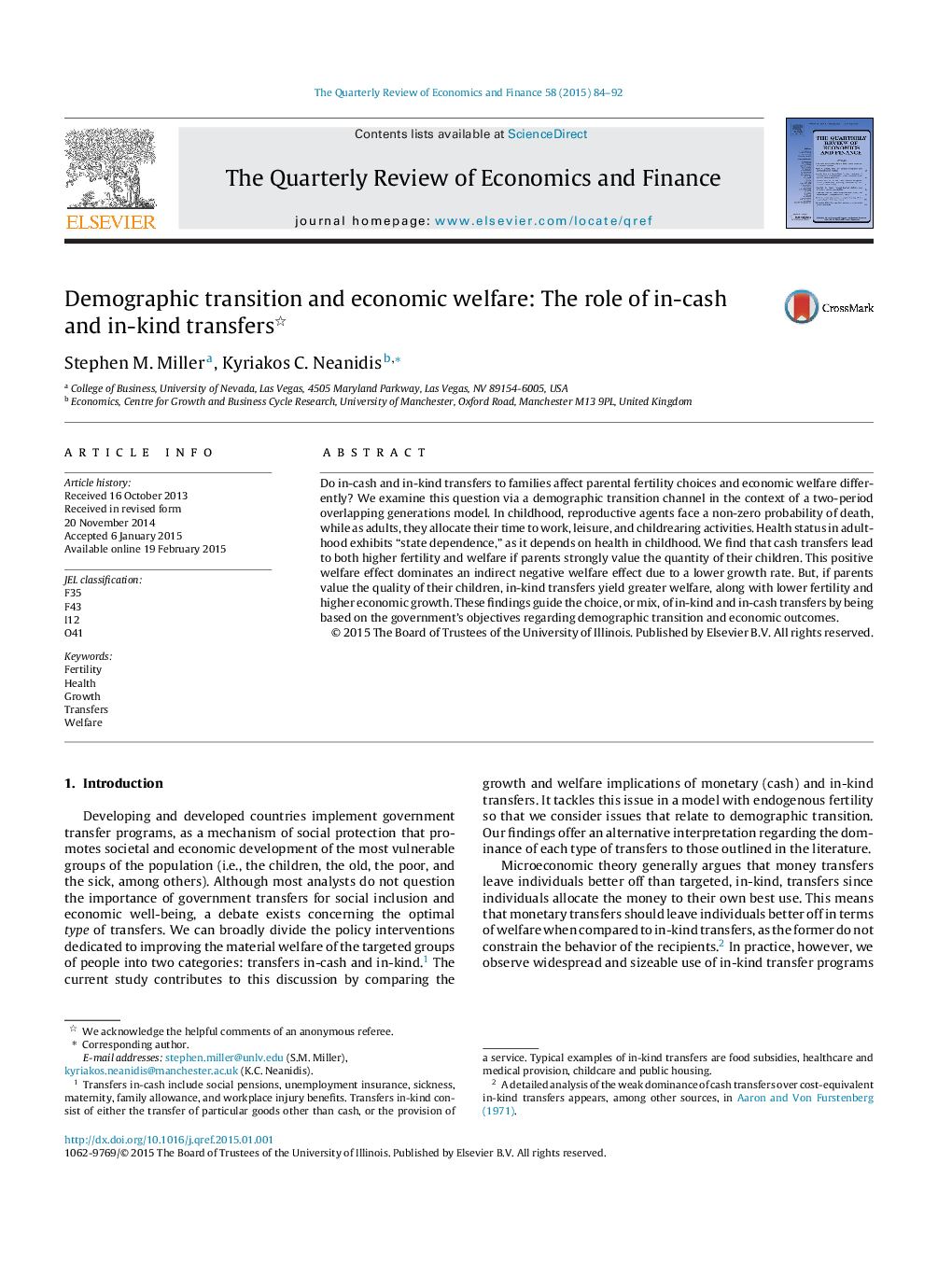| Article ID | Journal | Published Year | Pages | File Type |
|---|---|---|---|---|
| 983232 | The Quarterly Review of Economics and Finance | 2015 | 9 Pages |
•This paper considers the effects of transfers on economic welfare.•Giving monetary transfers produces more children and yields higher welfare.•Positive welfare effect dominates negative welfare effect through lower growth.•Parents achieve greater utility by in-kind transfers.•In-kind transfers also lower fertility and augment growth.
Do in-cash and in-kind transfers to families affect parental fertility choices and economic welfare differently? We examine this question via a demographic transition channel in the context of a two-period overlapping generations model. In childhood, reproductive agents face a non-zero probability of death, while as adults, they allocate their time to work, leisure, and childrearing activities. Health status in adulthood exhibits “state dependence,” as it depends on health in childhood. We find that cash transfers lead to both higher fertility and welfare if parents strongly value the quantity of their children. This positive welfare effect dominates an indirect negative welfare effect due to a lower growth rate. But, if parents value the quality of their children, in-kind transfers yield greater welfare, along with lower fertility and higher economic growth. These findings guide the choice, or mix, of in-kind and in-cash transfers by being based on the government's objectives regarding demographic transition and economic outcomes.
